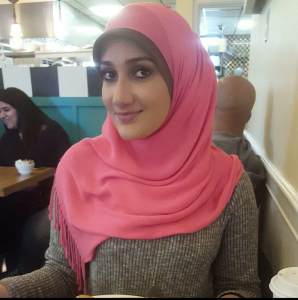This is the next in a series of posts by recipients of the Career Services Summer Funding Grant. We’ve asked funding recipients to reflect on their summer experiences and talk about the industries in which they’ve been spending their summer. You can read the entire series here.
This entry is by Shanab Menatallah, COL ’19
 I have dedicated my summer to working with the Zabbaleen (garbage-collectors) here in Cairo through a local non-profit. Despite the vital trash-collecting services they provide, the Zabbaleen continue to suffer from persecution both in the local and governmental sphere. The Zabbaleen are a marginalized and impoverished community that has been tucked away in the mountains on the outskirts of Cairo. Using pickup trucks and donkey carts, men collect garbage door-to-door in Cairo and, upon return to their residential area, women and children participate in recycling and sorting approximately 10,000 tons of garbage every day. The area houses about 50,000 people today, who have developed their own informal, sustainable economic infrastructure centered around the waste management industry. The non-profit I intern at is called the Spirit of Youth Association (SOY) and is located in the heart of the Zabbaleen community. SOY works to empower the Zabbaleen through environmental education and formalization of waste-management systems. I have immersed myself in the Zabbaleen daily life, teaching in the recycling school and assisting with several economic-development initiatives. I am deeply cognizant of the amount of privilege I have and am constantly self-critiquing and actively working to utilize that power to benefit this community and its people.
I have dedicated my summer to working with the Zabbaleen (garbage-collectors) here in Cairo through a local non-profit. Despite the vital trash-collecting services they provide, the Zabbaleen continue to suffer from persecution both in the local and governmental sphere. The Zabbaleen are a marginalized and impoverished community that has been tucked away in the mountains on the outskirts of Cairo. Using pickup trucks and donkey carts, men collect garbage door-to-door in Cairo and, upon return to their residential area, women and children participate in recycling and sorting approximately 10,000 tons of garbage every day. The area houses about 50,000 people today, who have developed their own informal, sustainable economic infrastructure centered around the waste management industry. The non-profit I intern at is called the Spirit of Youth Association (SOY) and is located in the heart of the Zabbaleen community. SOY works to empower the Zabbaleen through environmental education and formalization of waste-management systems. I have immersed myself in the Zabbaleen daily life, teaching in the recycling school and assisting with several economic-development initiatives. I am deeply cognizant of the amount of privilege I have and am constantly self-critiquing and actively working to utilize that power to benefit this community and its people.
“El-Zarrayib” or the residential area is tucked away in the Muqattam mountains and is not easily accessible by car. I would take a taxi to the opening of the mountain and then take a tok-tok—a small vehicle driven by children sometimes as young as 10 years old—about 15 minutes through small alleyways and tights streets until I reach the NGO building. There I worked intimately with teachers and students alike. Some days I worked with the teachers in the school for boys, brainstorming projects concerning improving the school curriculum and developing recycling programs for the youth. Other days, I would come in and delve right in, aiding the teachers in instructing the children in Arabic grammar. Eventually, I realized that a lot of the older youth wanted to improve their English language skills. So, I began giving lessons to several groups of girls ranging from middle school to college levels. I was kept busy with several disparate yet deeply rewarding tasks. Being immersed in the community made me cognizant of a lot of Egypt’s socioeconomic issues. I live in a relatively nice area called “Madinat Nasr”. It is a mere 20 minutes from the Zabbaleen area; however, the difference in living standards is disturbing. The wealth gap is jarring; the glaring inequality and massive wealth disparity continues to alarm me. I felt that by interning at this NGO this summer, I was able to discover the many faces of Egypt. The Zabbaleen were pushed into the mountains, on the outskirts of Cairo and out of public sight by President Gamal Abd El-Nasser and continue to be forgotten and ridiculed today despite the critical role they play in keeping the city clean. Working at SOY was a fruitful and truly unforgettable experience.

